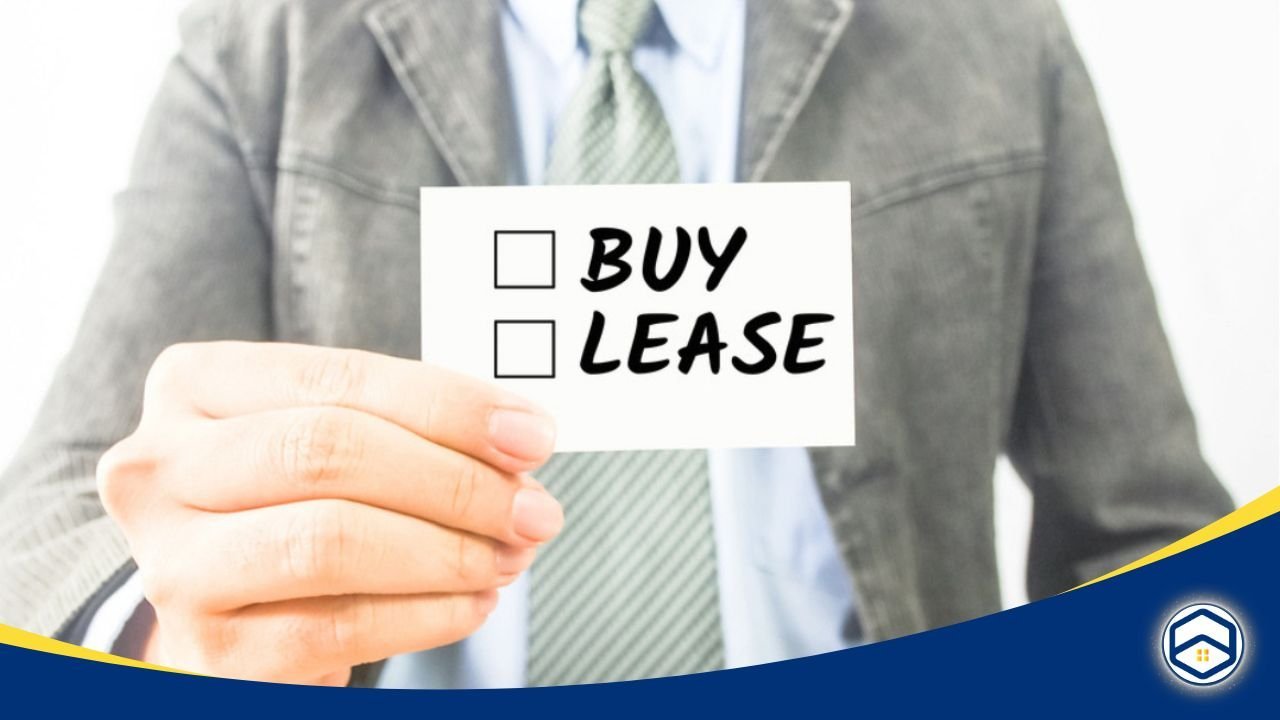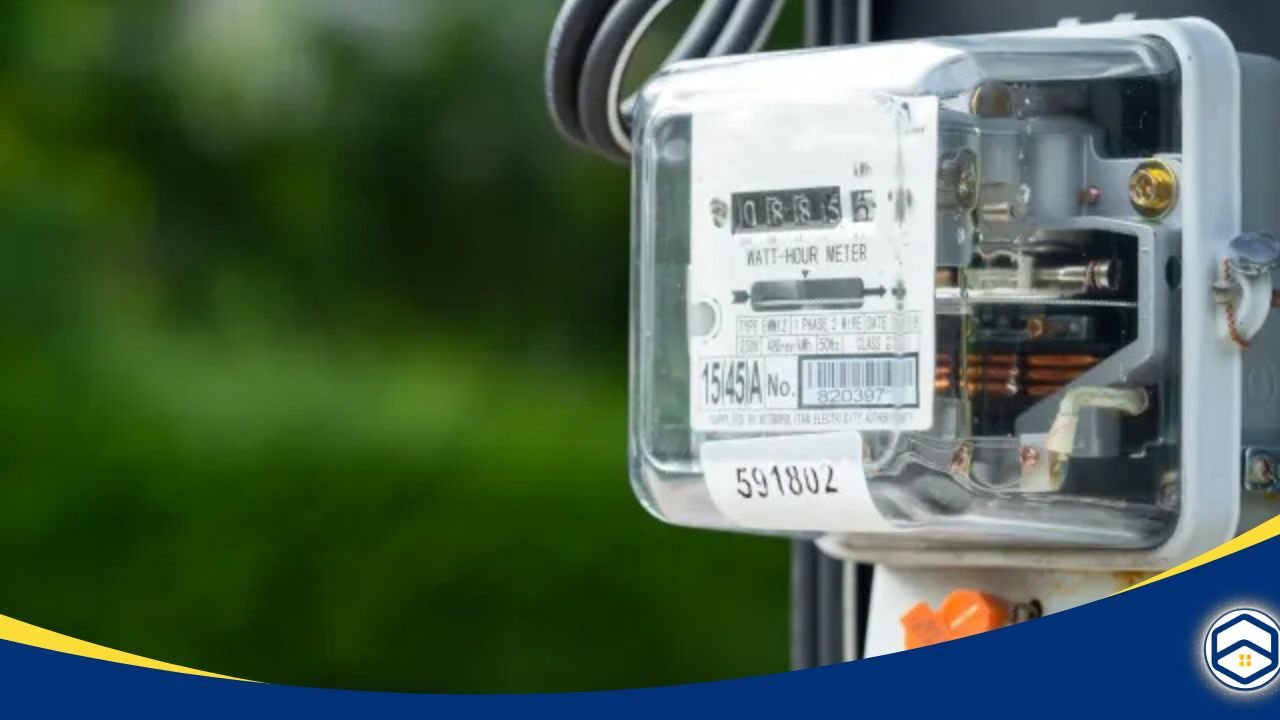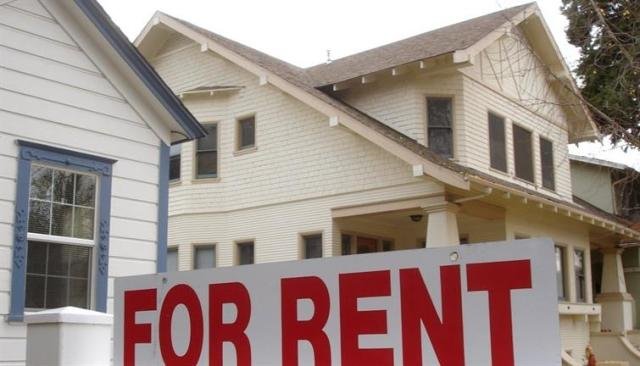When it comes to securing a commercial space for your business, one of the most critical decisions you’ll face is whether is it better to lease or buy a commercial space. This decision can significantly impact your business’s financial health, flexibility, and growth potential. In this article, we’ll explore the pros and cons of leasing versus buying a commercial space to help you determine which option is best for your business.
The Advantages of Leasing a Commercial Space
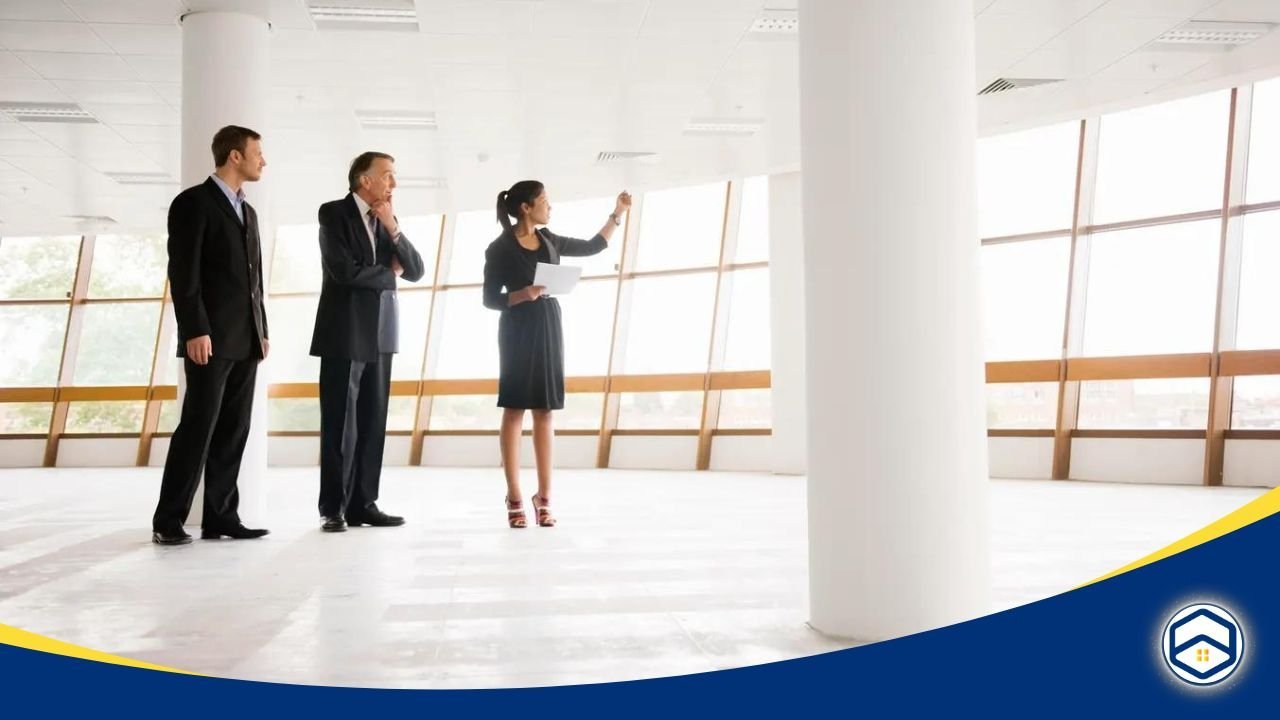
Lower Initial Costs
One of the primary advantages of leasing a commercial space is the lower initial costs. Leasing typically requires less upfront capital compared to buying. Instead of a hefty down payment, you’ll usually only need to cover the first month’s rent, a security deposit, and possibly some initial improvements to the space. This lower financial barrier can be especially beneficial for startups or small businesses with limited initial funding, allowing them to allocate more resources towards operational expenses and growth initiatives. When considering whether is it better to lease or buy a commercial space, this initial cost advantage often tips the scales in favor of leasing.
Flexibility
Leasing offers greater flexibility, which can be crucial for businesses that anticipate changes in size or location. Shorter lease terms allow you to move or expand without the long-term commitment of owning a property. This flexibility is particularly advantageous for businesses in volatile markets or those expecting significant growth or downsizing. As you ponder whether is it better to lease or buy a commercial space, the ability to adapt swiftly to market conditions makes leasing an attractive option.
Maintenance and Repairs
Many lease agreements stipulate that the landlord is responsible for most maintenance and repair costs. This can save your business money and hassle, allowing you to focus more on your core operations. Without the burden of unexpected repair costs or the need to manage property upkeep, businesses can enjoy a more predictable operating budget and reduced administrative responsibilities.
Tax Benefits
Lease payments are generally tax-deductible as a business expense, providing a significant financial benefit. This can help reduce your overall tax burden and free up capital for other business needs. Additionally, leasing can simplify your accounting processes, as lease expenses are straightforward and predictable compared to the complex depreciation schedules and tax implications associated with owning property.
Disadvantages of Leasing a Commercial Space

Lack of Equity
One of the main disadvantages of leasing a commercial space is that you do not build equity. Monthly lease payments go towards the landlord’s investment rather than creating an asset for your business. This lack of equity can be a significant downside when deciding whether is it better to lease or buy a commercial space, as owning property can provide long-term financial benefits and a valuable asset.
Limited Control
Leasing a commercial space often comes with restrictions imposed by the landlord, limiting your ability to make substantial changes or improvements to the property. This can be frustrating if you need to customize the space to fit your business needs. When evaluating whether is it better to lease or buy a commercial space, consider the potential limitations on your business operations and growth.
Rent Increases
Lease agreements often include provisions for rent increases over time, which can impact your budget and financial planning. These increases may be unpredictable and beyond your control. When pondering whether is it better to lease or buy a commercial space, the potential for escalating rent costs is a crucial factor to consider.
Instability
Leasing can sometimes lead to instability, especially if the landlord decides to sell the property or not renew your lease. This uncertainty can disrupt your business operations and force you to relocate. Assessing whether is it better to lease or buy a commercial space involves weighing the potential instability and its impact on your business continuity.
No Appreciation
Unlike owning property, leasing does not allow your business to benefit from property appreciation. If the property’s value increases, those gains go to the landlord, not to you. This lack of appreciation can be a disadvantage when considering whether is it better to lease or buy a commercial space.
The Advantages of Buying a Commercial Space
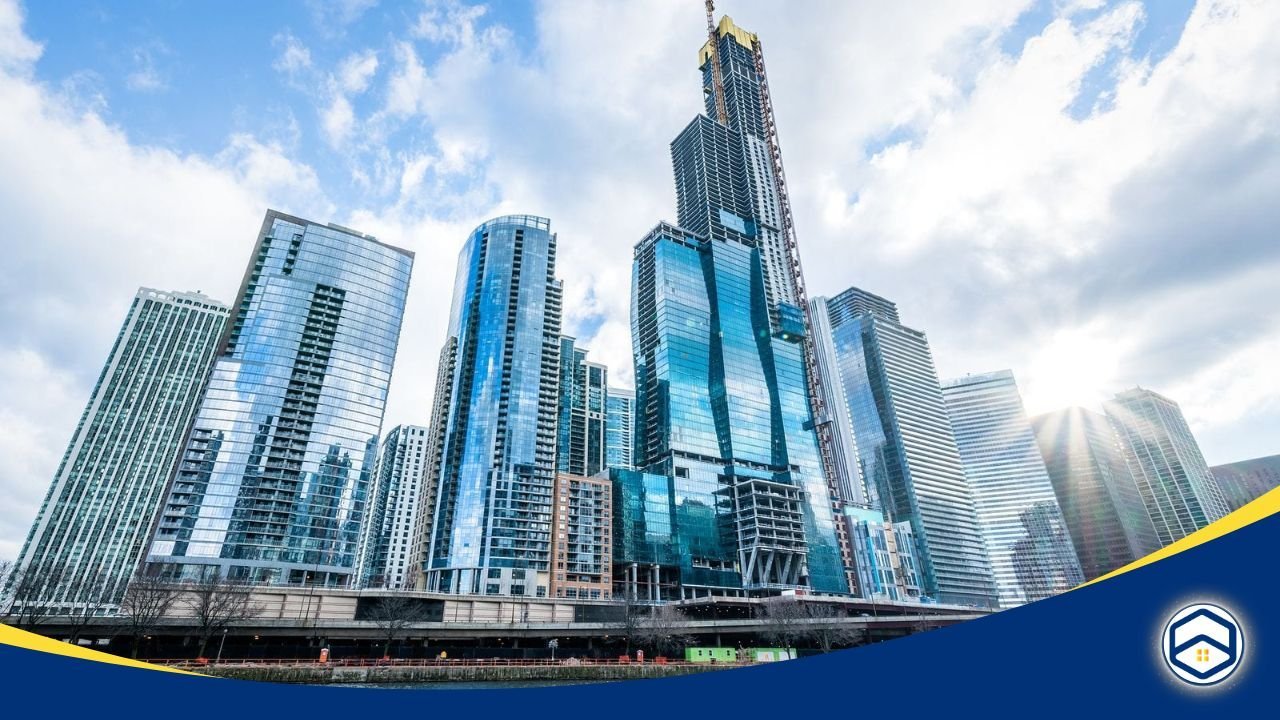
Equity Building
One of the most significant advantages of buying a commercial space is building equity. When considering is it better to lease or buy a commercial space, buying allows your monthly mortgage payments to contribute to owning the property outright. Over time, this can provide substantial financial benefits and create a valuable asset for your business.
Stability
Owning a commercial space offers stability and control over your property. When evaluating is it better to lease or buy a commercial space, owning means you won’t have to worry about lease renewals, rent increases, or the possibility of being forced to move. This stability can be particularly beneficial for businesses that require a long-term presence in a specific location.
Customization
When you own your commercial space, you have the freedom to customize it to meet your specific business needs. In the context of is it better to lease or buy a commercial space, owning allows for renovations, installing specialized equipment, or making aesthetic changes. Owning the property enables you to create an environment tailored to your business operations.
Disadvantages of Buying a Commercial Space

High Initial Costs
One of the main disadvantages of buying a commercial space is the high initial costs. When evaluating whether is it better to lease or buy a commercial space, consider that buying typically requires a substantial down payment, closing costs, and other fees. These significant upfront expenses can be a barrier for many businesses, especially startups and small businesses with limited capital. In addition to the purchase price, you may also incur costs for inspections, legal fees, and potential renovations to make the space suitable for your business needs. This financial commitment can strain your cash flow and limit your ability to invest in other areas of your business.
Maintenance and Repairs
As a property owner, you are responsible for all maintenance and repair costs. When deciding whether is it better to lease or buy a commercial space, remember that owning means you will need to budget for ongoing maintenance, repairs, and potential unexpected expenses. This responsibility can divert resources away from your core business activities. Regular maintenance such as HVAC servicing, plumbing, electrical work, and exterior upkeep can be time-consuming and costly. Additionally, major repairs like roof replacements or structural issues can lead to significant expenditures that can impact your financial stability.
Reduced Flexibility
Buying a commercial space can reduce your business’s flexibility. If your business needs to expand, downsize, or relocate, owning property can make these changes more complicated and costly. When considering whether is it better to lease or buy a commercial space, think about the potential limitations on your ability to adapt quickly to changing market conditions or business needs. Selling a property or purchasing additional space involves significant time and financial investment. This reduced flexibility can be a disadvantage for businesses in rapidly changing industries or those that are experiencing unpredictable growth patterns.
Market Risk
Property values can fluctuate, and there is always a risk that your commercial space could decrease in value. When weighing whether is it better to lease or buy a commercial space, take into account the market risk and the potential for your investment to lose value. This risk can affect your business’s financial stability and long-term planning. Economic downturns, changes in the local real estate market, or shifts in the desirability of the area can all impact property values. If the market declines, you may face difficulties selling the property or refinancing your mortgage, which can affect your overall financial strategy.
Opportunity Cost
Investing a significant amount of capital in purchasing a commercial space means those funds are not available for other potential investments or business opportunities. When assessing whether is it better to lease or buy a commercial space, consider the opportunity cost of tying up your capital in real estate instead of using it to grow your business in other ways. These funds could be used for marketing, product development, hiring additional staff, or expanding your services. By purchasing property, you might miss out on opportunities that could yield higher returns or drive your business forward more effectively. Additionally, during periods of market uncertainty or economic downturns, having liquidity and flexibility can be crucial for maintaining business operations and seizing new opportunities.
Potential for Income Generation
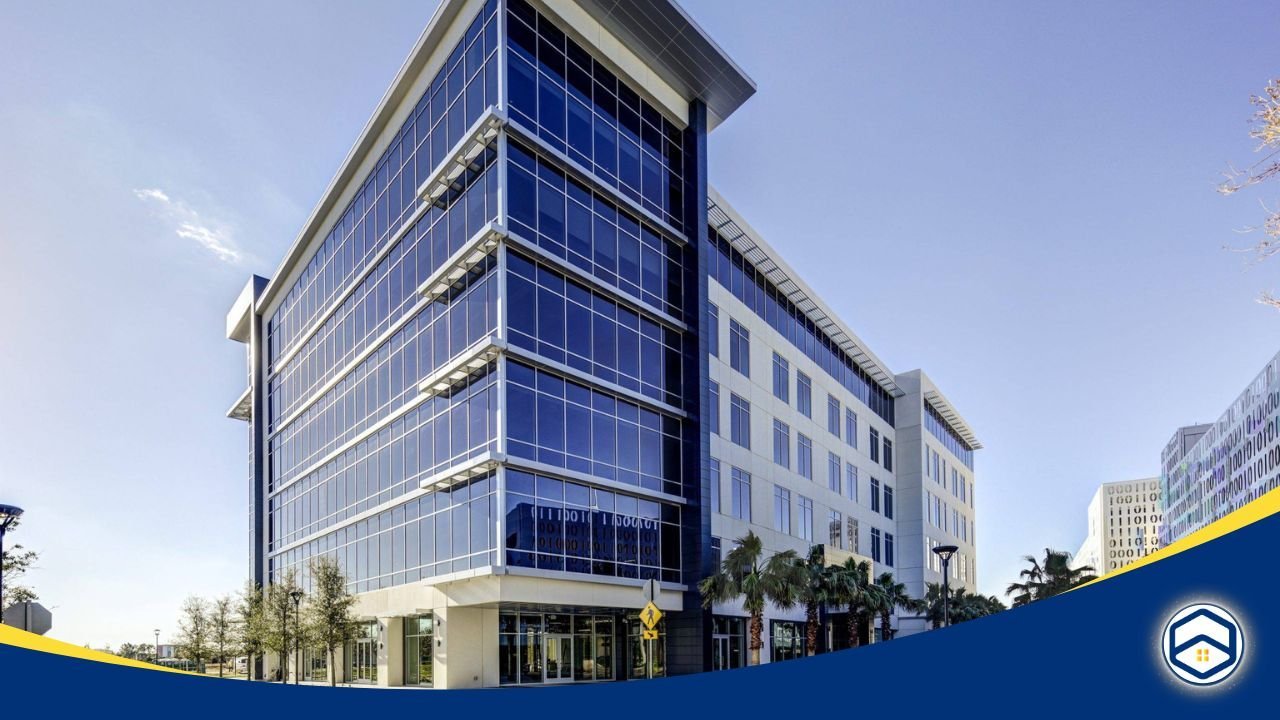
If your commercial space has extra room, you can lease out portions of the property to other businesses. This can generate additional income and help offset the costs of ownership.
Key Considerations
When deciding is it better to lease or buy a commercial space, there are several factors to consider:
- Financial Situation: Assess your current financial health and long-term financial goals. Can you afford the initial costs and ongoing expenses of owning a property?
- Business Growth: Consider your business’s growth projections. Will you need more space in the future, or is your current size sufficient for the foreseeable future?
- Market Conditions: Analyze the real estate market in your area. Are property values expected to rise, making it a good investment, or is leasing a more cost-effective option?
- Long-Term Plans: Think about your long-term business plans. Are you looking for stability and control, or do you need the flexibility to move or expand as needed?
Conclusion
Ultimately, the decision is it better to lease or buy a commercial space depends on your unique business needs, financial situation, and long-term goals. Both options have their advantages and disadvantages, and it’s essential to weigh them carefully to make the best choice for your business. By considering the benefits of leasing and buying, you can determine the most strategic approach to securing your commercial space and supporting your business’s success.

